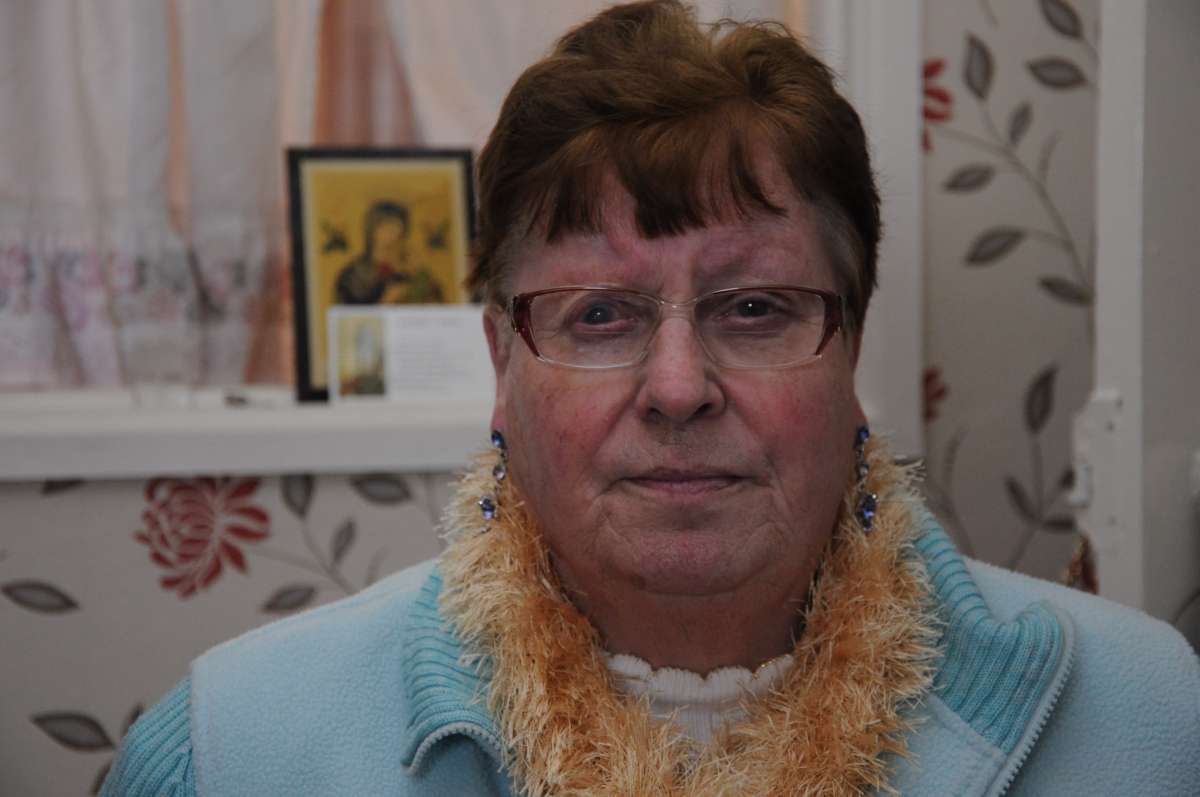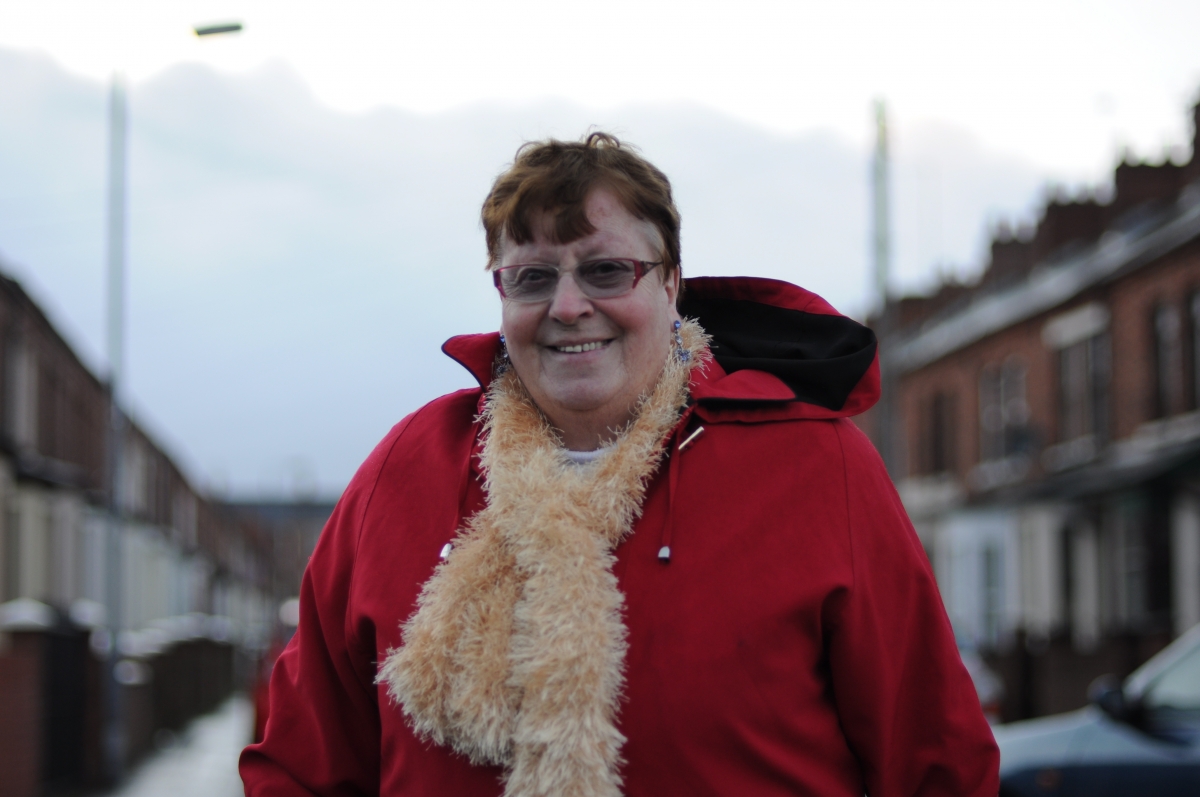Rosaleen is 75, single and lives in south Belfast where she is active in the local community. Having worked all her life, she had thought that her state pension and a small occupational pension would be sufficient in her retirement. But, increasingly, she finds paying the bills difficult.
Meet Rosaleen in the following two videos recorded in December 2011.
© 2012. All films are the copyright of the PSE: UK project and must not be reproduced, posted or downloaded. The films were produced for The Open University by Angel Eye Media; filmed and directed by Gabi Kent and researched by Jane MacGowan.
I try not to look too far ahead because it would worry me.
Rosaleen retired from a career in nursing when she was 60 and then became a local councillor for Castlereagh. She received an MBE for her community work in 1995. Rosaleen is still very active in her local community, volunteering with pensioner groups.
Like many pensioners who have been comfortable during their working life, retirement has meant an increasing inability to afford basic necessities. Rosaleen owns a small terrace house in a deprived area of South Belfast, and is finding it increasingly difficult to pay for upkeep and repairs. She is finding it hard to climb her stairs and may need to pay for adjustments to her home in the future.
The cost of heating in winter is a particular worry, not just for Rosaleen but for all the pensioners at the groups in which she volunteers. Many feel forced to cut back on heating their homes in winter. It is an issue they are campaigning on.
Background
Fuel poverty
While pensioners are less vulnerable to poverty overall than the low paid and the unemployed, they are especially at risk from fuel poverty. Being unable to keep your home adequately warm leads to stress, ill-health and excess winter deaths (see Fuel poverty leads to ill-health).
Fuel poverty is currently defined as when a household spends a tenth or more of its income on energy. Driven by rising energy costs, fuel poverty in the UK has risen by a quarter over the last year (see Fuel poverty on the rise). In Northern Ireland, where expensive oil heating is widespread, 44 per cent of households suffer from fuel poverty, the highest level of fuel poverty in the UK. Pensioners in Northern Ireland need to spend just under 30 per cent more than UK pensioners to cover their household fuel costs (see Defining Fuel Poverty in Northern Ireland).
Pensioners have been partially protected from wider benefit changes, with the state pension, unlike other benefits, being now linked to earnings. However, they have faced a cut in the universally paid winter fuel payment in 2011/12 – from £250 to £200 for those under 80 and from £400 to £300 for those over 80.
In December 2011, the Northern Ireland government announced a one-off payment of £100 for the poorest pensioners in receipt of pensioner credit.






 PSE:UK is a major collaboration between the University of Bristol, Heriot-Watt University, The Open University, Queen's University Belfast, University of Glasgow and the University of York working with the National Centre for Social Research and the Northern Ireland Statistics and Research Agency. ESRC Grant RES-060-25-0052.
PSE:UK is a major collaboration between the University of Bristol, Heriot-Watt University, The Open University, Queen's University Belfast, University of Glasgow and the University of York working with the National Centre for Social Research and the Northern Ireland Statistics and Research Agency. ESRC Grant RES-060-25-0052.






